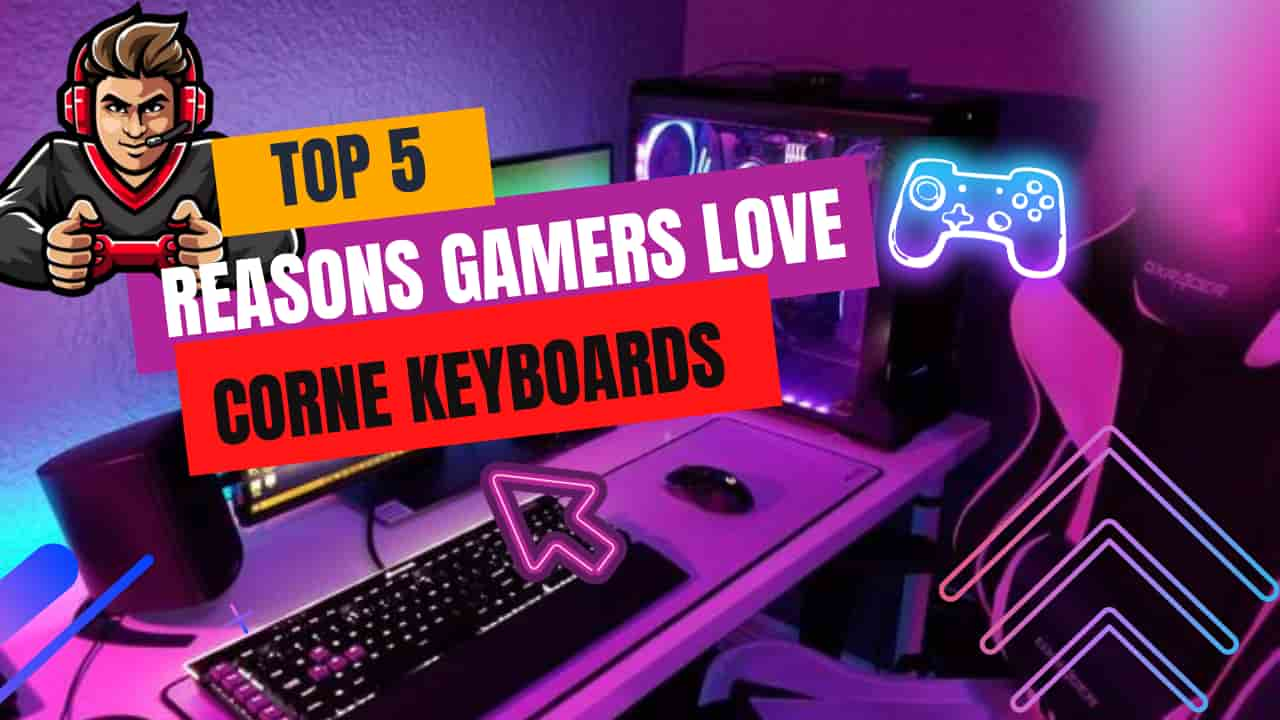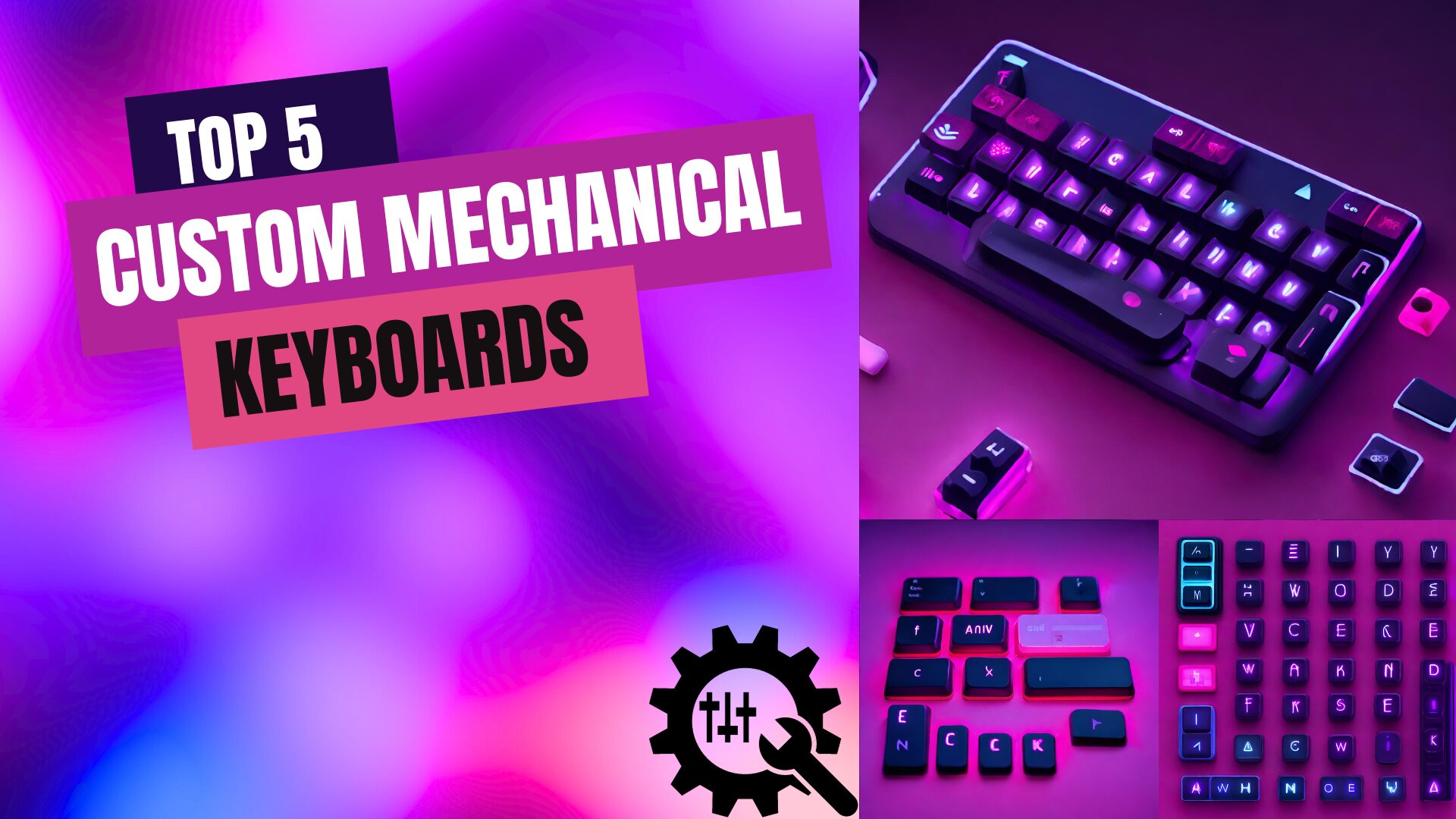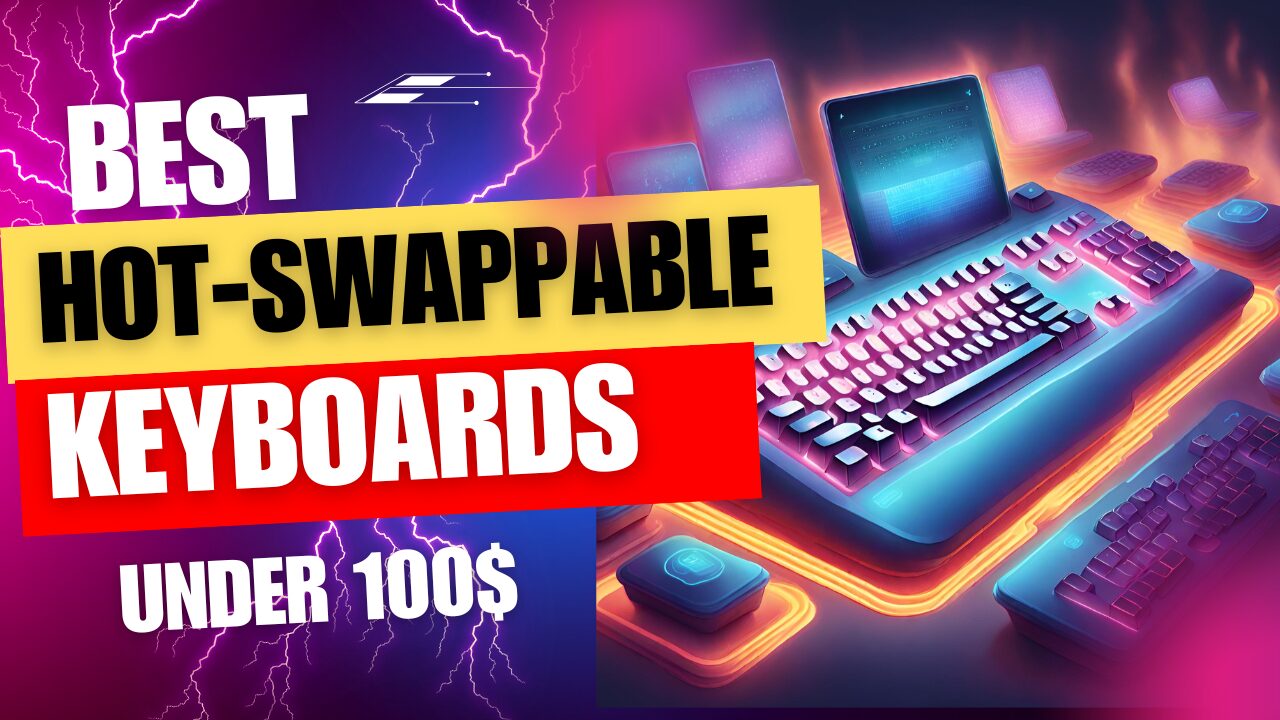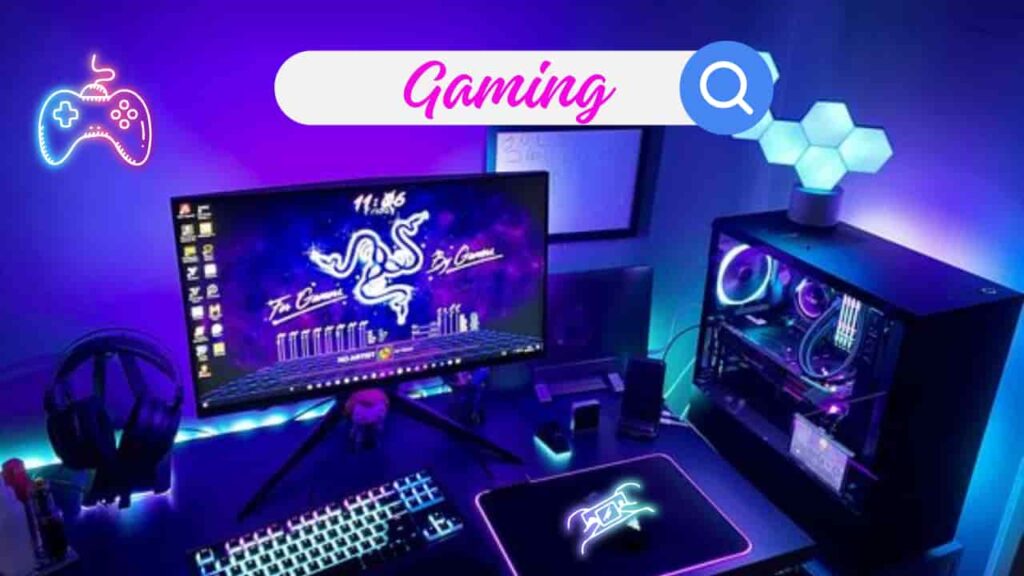
Gamers, brace yourselves! In the gaming world, a cool new keyboard design is getting really popular: The Corne keyboard. Initially designed for programmers, these keyboards are now making waves in the Gaming community. This neat split keyboard is small and comfy, making it a great choice for gamers who want to be comfy and play their best. Unlike regular keyboards, the Corne splits in two, so your hands can sit in a more natural way and your wrists don’t get tired during long gaming sessions.
But the Corne is cool for more than just comfort. Anyone can Customize it to work exactly how they want, from the buttons to the glowy lights, because it’s open-source. This means gamers can set it up just right for their favorite games.
Still, Wondering why gamers are switching to Corne Keyboards? We have compiled the top 5 reasons explaining this growing trend. Get ready to level up your gaming experience!
What is a Corne Keyboard?
The Corne Keyboard, or the Helidox or CRKBD, is a split ergonomic keyboard featuring a unique 3×6 column staggered layout and 3 thumb keys. It’s a compact keyboard, often called a 40% keyboard, due to its size compared to a full-sized keyboard. Initially developed by Japanese designer Foostan, this keyboard gained popularity within the mechanical keyboard enthusiast community and has become famous worldwide.
The Unique Features of Corne Keyboards
Corne Keyboard v3 takes the concept of split keyboards to the next level. With their compact and sleek design, these keyboards offer a unique typing experience that is both comfortable and efficient.
Here are some key features of the Corne keyboard:
- Split Design: The Corne Keyboard is split into two halves, allowing users to position them ergonomically for a more natural hand placement. This split layout precise PCB design can reduce strain during long typing sessions.
- Columnar Layout: It features a 3×6 column staggered keys arrangement, which means each half has three columns of six keys. This layout aims to improve finger reach and reduce finger movement.
- Thumb Keys: The Corne Keyboard includes three thumb keys on each side. These keys are strategically placed for easy access by your thumbs, enhancing overall typing efficiency.
- MX Profile Keys: It supports the standard MX key profile, which gives you a classic look and typing experience. Whether you’re dreamy for vintage vibes or appreciate a satisfying keystroke, this low-profile corne keyboard covers you.
- RGB Lighting: Each key and the bottom of the keyboard come with per-key RGB lighting, adding flair to your typing experience. Let your fingertips dance across a well-lit keyboard!
- OLED Screens: The Corne keyboard features OLED screens that display anything you program. From cute animations to diagnostic charts, these screens turn your keyboard into a dynamic canvas for creativity.
- Hotswap Compatibility: The Corne is hotswap-compatible, allowing you to swap out switches without soldering easily.
- Customization: Make your Corne keyboard as unique as you are! You can start from scratch or draw inspiration from existing designs. Personalize it to match your style.
Reasons Gamers are Switching to Corne Keyboards
You might wonder, “Why should I switch to a Corne Split Keyboard?” Well, buckle up, my friend, because I’m about to give you not just one but five compelling reasons why gamers worldwide are making the switch.
1. Ergonomic Design: A Comfortable Gaming Experience
Gamers often spend long hours at their computers, and traditional keyboards can lead to discomfort, fatigue, and even repetitive strain injuries (RSI). The Corne keyboard offers several ergonomic features that address these concerns:
- Split Design: The Corne keyboard is a split keyboard, meaning the keys are divided into two halves, allowing users to position them shoulder-width apart. This helps to maintain a more natural hand position and reduce strain on the wrists and forearms.
- Columnar Layout: Unlike traditional keyboards with rows of keys, the Corne keyboard uses a columnar layout where the keys are arranged in columns. This layout is more natural for finger movement, reducing the need to reach for keys and further minimizing strain.
2. Thumb Clusters for Efficiency
The Corne keyboard has special buttons on the sides, called thumb clusters, that your thumbs can easily reach. These keys are like extra keys you can use for things you need to do in games, like hiding, reloading your gun, or checking your backpack.
- Your thumbs are strong: Using the thumb clusters means you don’t have to use your other fingers as much, which can get tired during long games.
- Reach faster: By putting important actions on the thumb clusters, you can do them quicker than reaching for buttons on the main keyboard. This can help you react faster in games.
- More buttons to use: The thumb clusters give you more buttons to press without making the keyboard bigger. This means you can do more actions easily without remembering complicated button combinations.
3. Customizable Keymapping
Gamers often rely on quick and precise keystrokes to perform in-game actions effectively. Traditional keyboards might not always offer the optimal layout for specific games or personal preferences.
The Corne keyboard excels in this area due to its:
- Fully Programmable Keys: Every key on the Corne can be remapped to any other key, function, or macro. This allows gamers to create a layout that perfectly suits their needs for each game, placing frequently used commands or abilities within easy reach. For example, a player could map a macro to a specific key for a complex in-game combo attack.
- Layer System: The Corne utilizes a layer system, allowing access to additional keys beyond the standard layout. By holding a specific key (like a function key), another layer of keys becomes active, offering even more options for key functions. This allows access to less frequently used functions without overloading the main layout.
- Open-Source Software: The Corne is an open-source project, meaning its software and configuration tools are freely available. This allows users to modify the keyboard’s firmware and create unique layouts and functionalities tailored to their preferences.
4. Compact Size
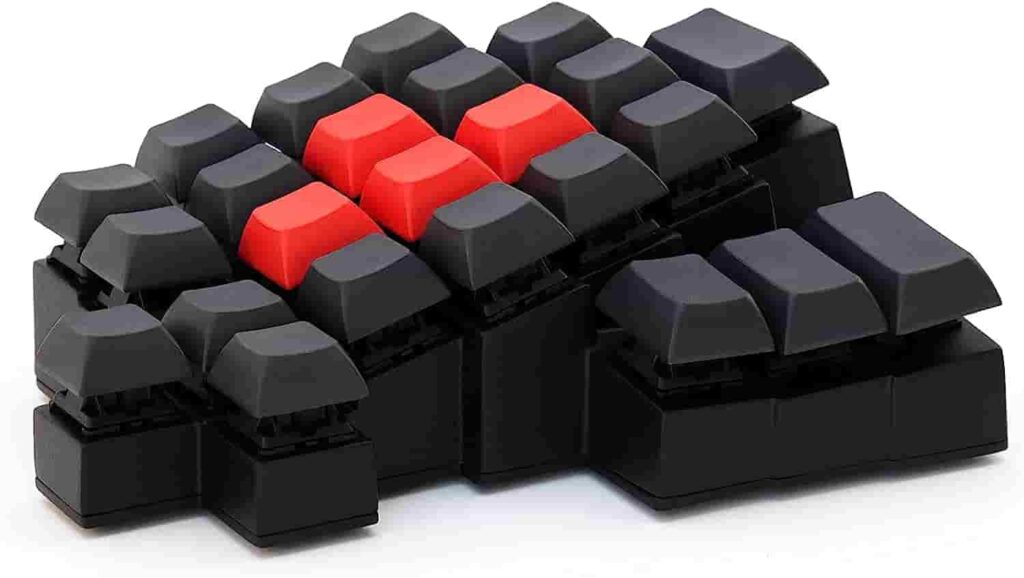
The Corne keyboard packs a punch in a tiny package. Here’s why the size is a big win for gamers:
- Reduced Desk Footprint: With just 42 keys, the Corne keyboard is significantly smaller than a traditional keyboard. This frees up valuable desk space, allowing for more comfortable mouse positioning and a less cluttered setup. This is especially beneficial for gamers with limited desk real estate or those who prefer a minimalist aesthetic.
- Increased Mouse Movement Freedom: The compact size allows for more freedom of movement for your mouse. This can be crucial in fast-paced games where quick and precise mouse movements are essential for success.
- Portability: The Corne’s small size and lightweight design make it surprisingly portable. Gamers attending tournaments or LAN parties can easily bring their keyboard without worrying too much space.
5. Community and Support
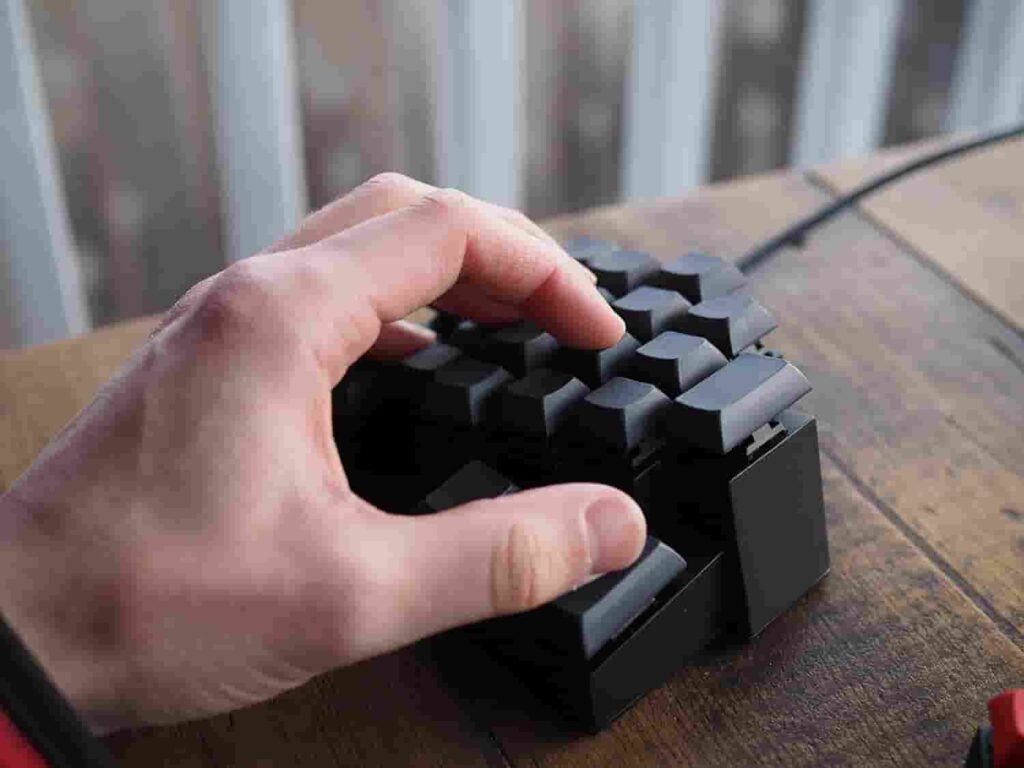
One of the best things about being a gamer is the sense of community. And when you join the Corne Keyboard community, you’ll find a group of passionate gamers who are always ready to help and support each other.
Whether you’re looking for advice on building your Corne Keyboard or need troubleshooting tips, this community has your back. Also, there’s always something exciting happening, from group buys for unique keycap sets to firmware updates that enhance your gaming experience.
Step-by-Step Guide to Building a Corne Keyboard
1. Acquire the Components:
- PCB (Printed Circuit Board): Obtain a Corne keyboard PCB. You can find these online from various sources.
- Switches: Choose your preferred mechanical switches (Cherry MX, Gateron, etc.). The Corne typically uses 42 switches in total.
- Keycaps: Select keycaps that fit the Corne layout. You’ll need 42 keycaps in total.
- Microcontroller: The Corne uses a Pro Micro or similar microcontroller.
- Diodes: You’ll need 42 diodes for each switch.
- Case and Plate: Decide whether you want to build a custom case or use an existing one.
- Screws, Standoffs, and Rubber Feet: These are essential for assembling the keyboard.
2. Soldering and Assembly:
- Solder the Diodes: Solder a diode to each switch. Pay attention to the diode’s orientation (usually marked with a stripe).
- Solder the Switches: Attach the switches to the PCB. Make sure they align correctly with the switch holes.
- Attach the Microcontroller: Solder the Pro Micro or compatible microcontroller to the PCB.
- Assemble the Case: If you’re building a custom case, follow the design and assembly instructions. Otherwise, use an existing case.
3. Layout and Keymap:
- Decide on your keymap. The Corne has a unique layout, so customize it to your preferences.
- Use tools like QMK Configurator or QMK Toolbox to create your keymap.
4. Flashing Firmware:
- Compile your keymap using QMK firmware.
- Flash the firmware onto the microcontroller using QMK Toolbox.
5. Testing and Debugging:
- Test each key to ensure it registers correctly.
- Troubleshoot any issues (e.g., if a key isn’t working).
6. Keycap Installation:
- Place the keycaps on the switches.
- Ensure they fit snugly and align with your keymap.
7. Final Assembly:
- Secure the PCB inside the case.
- Attach the plate (if applicable).
- Screw the case together.
- Add rubber feet to the bottom for stability.
8. Enjoy Your Custom Corne Keyboard!:
- Connect your Corne to your computer.
- Start typing and enjoy the ergonomic benefits of this split keyboard.
Remember, building a keyboard is both rewarding and educational. Feel free to experiment with different switches, keycap profiles, and layouts to create a keyboard that suits your typing style.
Different Types of Corne Keyboards – Kits, Prebuilt, and Assembled
The unique world of mechanical keyboards offers a level of customization you won’t find with mainstream options. The Corne keyboard, with its split ergonomic design, is no exception. But how do you get one? Here’s a breakdown of the three main options:
1. DIY Kits:
- For the tinkerer: This option is perfect for those who enjoy the building process and a challenge.
- What’s included: A DIY kit typically comes with all the electronic components you need to build a Corne keyboard, including the PCB (printed circuit board), diodes, switches, and keycaps.
- Skills required: Soldering is usually necessary to assemble a DIY kit. Some advanced kits might offer hot swap options, allowing switch installation without soldering.
- Pros: Most cost-effective option, allows for complete customization of every component.
- Cons: Requires technical skills and time investment for assembly. Troubleshooting issues can be more complex.
2. Pre-Built Corne Keyboards:
- For convenience seekers: This option is ideal for those who want a ready-to-use Corne keyboard without the hassle of building one themselves.
- What’s included: A pre-built Corne keyboard comes fully assembled and tested by the vendor. It will typically include all the components of a DIY kit (PCB, switches, keycaps) but already soldered and programmed.
- Pros: The quickest and easiest way to get a Corne keyboard. No technical skills required. Often comes with a warranty for peace of mind.
- Cons: Typically more expensive than DIY kits. Fewer customization options compared to building your own.
3. Pre-Assembled Kits (Sometimes called “Corne Keyboard Assembled”)
- A middle ground: This option falls between DIY kits and pre-built keyboards.
- What’s included: Similar to a DIY kit, it includes all the components, but the vendor might offer pre-soldering or pre-flashed services for an additional fee. This saves you the hassle of soldering but allows for customization with switch and keycap selection.
- Pros: Faster and easier than building from scratch. Offers some level of customization compared to fully pre-built options.
- Cons: It may be slightly more expensive than DIY kits due to pre-assembly services. Less common option compared to the other two.
Comparing Corne Keyboards to Traditional Gaming Keyboards
Let’s discuss the differences between Corne Keyboards and traditional gaming ones. Traditional gaming keyboards are often bulky, with a full-size layout that can take up a significant amount of desk space.
On the other hand, Corne Keyboards are compact and lightweight, making them ideal for gamers who value portability. Additionally, Corne Keyboards offer a split layout, which promotes a more ergonomic typing position and reduces the risk of repetitive strain injuries.
| Feature | Corne Keyboard | Traditional Gaming Keyboard |
|---|---|---|
| Ergonomics | Split design with angled keys promotes a natural hand position, reducing strain and fatigue | Split design with angled keys promotes a natural hand position, reducing strain and fatigue. |
| Customization | Highly customizable with various layouts, keycaps, macros, and programming options | Open-source nature and constant community development ensure it stays ahead of the curve. |
| Portability | Compact and lightweight, easily portable for LAN parties or travel | It is a large but less focused community, with fewer resources specifically dedicated to gaming keyboards |
| Community | Active and supportive online community with forums, Discord servers, and YouTube channels | It is a large but less focused community, with fewer resources dedicated to gaming keyboards. |
| Future-Proofing | Split design with angled keys promotes a natural hand position, reducing strain and fatigue. | Limited innovation, relying on traditional designs and features |
Conclusion:
In conclusion, Wireless Corne Keyboards are revolutionizing the gaming world with their ergonomic design, customization options, portability, and strong community support. Gamers are switching to Corne-led Keyboards because they offer a more comfortable and efficient typing experience while allowing for personalization and future-proofing. As the gaming community grows and evolves, we expect to see more innovative and unique keyboards like the Corne Keyboard emerge. So, if you’re ready to level up your gaming experience, it’s time to switch to a Corne Keyboard and join the revolution.
Now that you know all about the benefits and features of Corne Keyboards, why not try? Upgrade your gaming setup today and experience gaming like never before!
Ready to level up your gaming experience? Check out the latest Corne Keyboards and take your gaming to the next level! Don’t forget to join the Corne Keyboard community for support, tips, and exciting updates.
What is a Corne Keyboard?
A Corne Keyboard is a split keyboard designed to be ergonomic and customizable. It consists of two halves that split down the middle, allowing you to position them in a way that is comfortable for your hands and wrists. This can help to reduce strain and fatigue, especially during long gaming sessions.
What are the drawbacks of using a Corne Keyboard?
There are a few drawbacks to using a Corne Keyboard, including:
- Learning curve: The keyboard’s split design can take some time to get used to.
- Limited availability: Corne Keyboards are not as widely available as traditional keyboards.
- Cost: Corne Keyboards can be more expensive than traditional keyboards.
How to build corne keyboard?
There are a few ways to build a Corne Keyboard:
- Buy a kit: You can buy a kit with all the necessary parts to build your Corne Keyboard.
- Purchase a pre-built keyboard: You can also purchase a pre-built Corne Keyboard.
- Build your keyboard from scratch: If you are comfortable with soldering, you can build your Corne Keyboard.
What are the best switches for a Corne Keyboard?
The best switches for a Corne Keyboard will depend on your personal preferences. Some popular switch options include Cherry MX Browns, Gateron Browns, and Kailh Box Browns.
What are the best keycaps for a Corne Keyboard?
The best keycaps for a Corne Keyboard depend on your preferences. Some popular keycap options include DSA, XDA, and SA keycaps.
What is the layout of the Corne keyboard?
The Corne keyboard has a split layout consisting of two halves that split down the middle. This allows you to position each half of the keyboard in a way that is comfortable for your hands and wrists.
The layout of the Corne keyboard is ortholinear, which means that the keys are arranged in straight rows and columns. This can be more efficient for typing than a traditional staggered layout, as it reduces the amount of finger movement required.
The Corne keyboard has a standard 60% layout, which means it has 61 keys. However, there are also versions of the Corne keyboard with 40% and 75% layouts.
What is the price of Corne Keyboard?
The cost of a Corne keyboard depends on whether you build it yourself or buy pre-built.
- DIY: Depending on the chosen components, the cost can range from $100 to $150.
- Pre-built: Prices can vary, but expect to pay more than the cost of parts.
